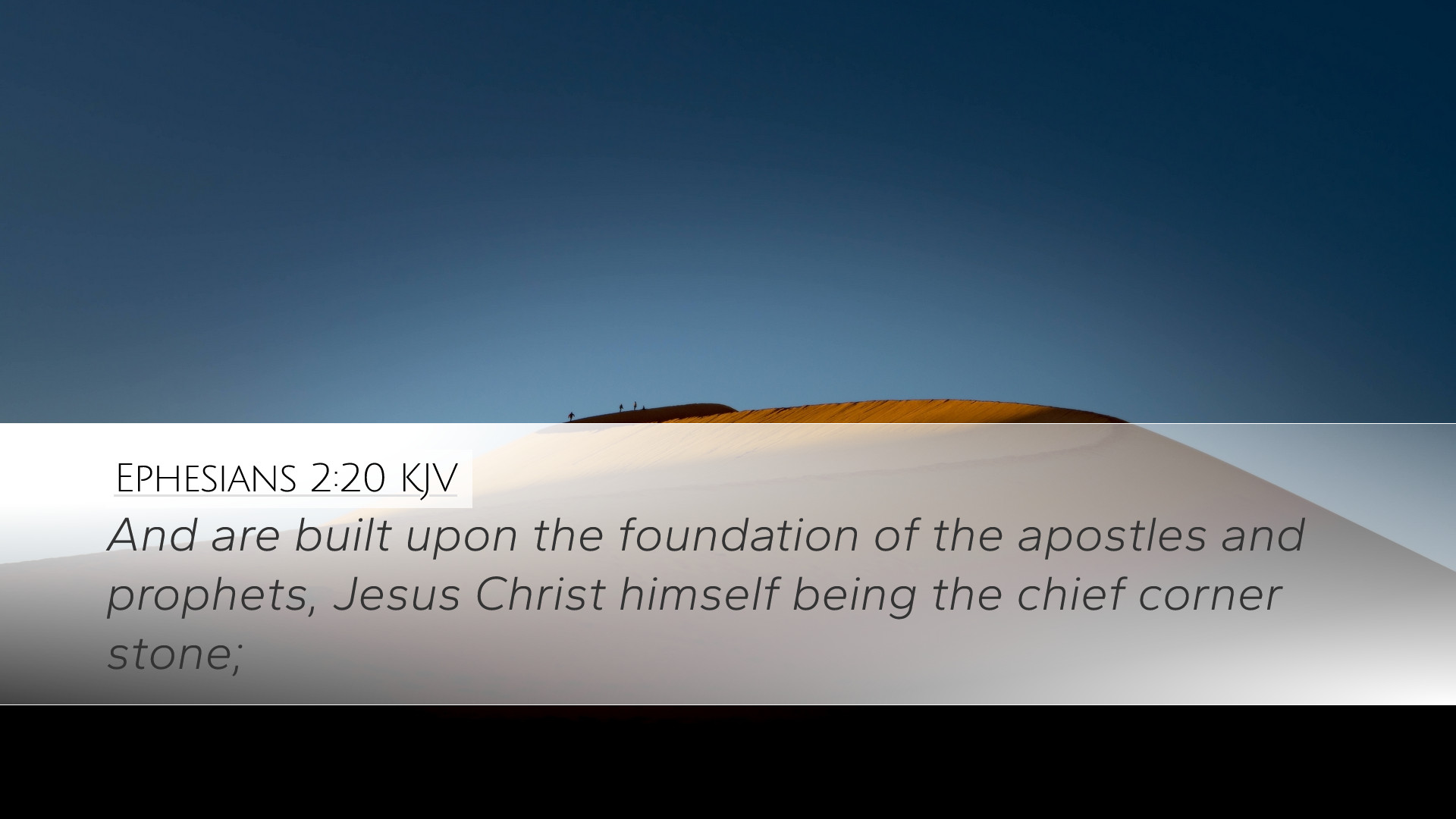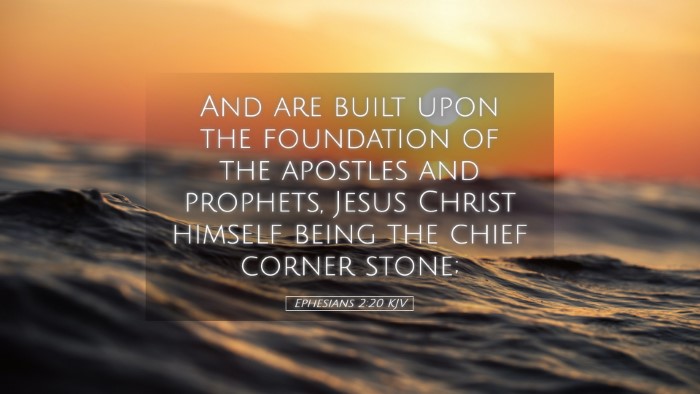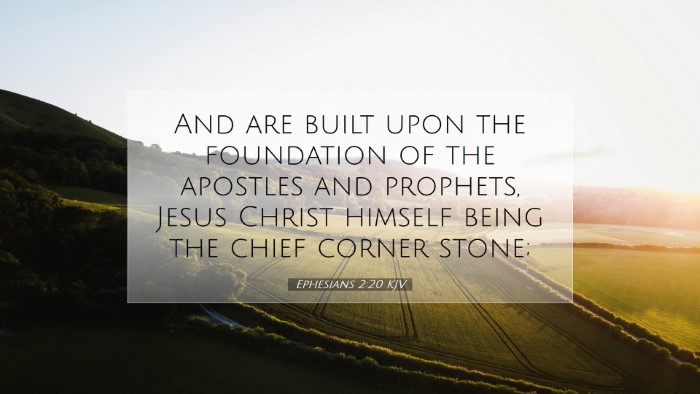Ephesians 2:20 - Commentary Overview
Ephesians 2:20 states: “And are built upon the foundation of the apostles and prophets, Jesus Christ himself being the chief corner stone.” This verse eloquently describes the foundation of the Church and its cornerstone, Jesus Christ. The insights derived from public domain commentaries by Matthew Henry, Albert Barnes, and Adam Clarke provide a rich understanding of this text.
1. The Foundation of the Apostles and Prophets
Henry describes the foundation as established through the teachings and writings of the apostles and prophets, which collectively constitute what is known as the Word of God. These foundational figures were instrumental in laying the doctrinal groundwork on which the Church stands. The teachings of the apostles are imbued with authority as they were appointed by Christ Himself, making their messages vital for the Church’s integrity.
Barnes elaborates on the term "prophets," suggesting that it refers not only to those who foretold the future but also to those who preached and proclaimed God’s message. This dual role emphasizes that the foundation is rooted in both prediction and proclamation, thus enriching the Church's theological framework.
Clarke points out that the unity of the apostles and prophets signifies a divine purpose, highlighting how both groups worked together under divine inspiration to convey God’s revelation. They are not isolated in their respective ministries; rather, their contributions are interlinked and supplementary to each other, forming a cohesive doctrinal base.
2. Jesus Christ: The Chief Cornerstone
In the latter part of the verse, Paul identifies Jesus Christ as the chief cornerstone, a designation that carries profound significance. Henry notes that the cornerstone is essential for the stability and integrity of a building. In the context of the Church, this depicts Christ’s crucial role as the stabilizing force that holds everything together.
Barnes emphasizes the exclusive nature of Christ’s position; He is not merely a stone among others but the central stone. This metaphorological reference illustrates how all aspects of the faith center around Jesus, underscoring His divine nature and redemptive work as the fulfillment of the law and prophets.
Clarke adds that understanding Jesus as the chief cornerstone causes believers to recognize their reliance on Him as the source of spiritual strength. Without Christ, the Church would lack foundation and resilience, making faith in Him central to the life and growth of the body of believers.
3. The Church as a Building
The metaphor of the Church as a building implies an active construction, where each member plays a part. Henry states that believers are fitted together by divine providence, harmonizing their spiritual gifts to contribute to the overall structure of the Church. Each person’s role is vital, reflecting their unique purpose within the larger body.
Barnes explains that this construction is ongoing, and the Church is perpetually being built up in faith and love. It highlights the notion of growth in the believer's life, as they support and encourage one another in their spiritual journey.
Clarke points out that this imagery carries implications for unity; just as a building must be level and aligned to endure, so must believers strive for harmony and mutual edification, reflecting the unity that exists in Christ.
4. Implications for Believers
The application of this verse for believers today is profound. Henry encourages Christians to recognize their identity as part of a grand structure being built by God, enhancing both personal and communal faith. This awareness fosters humility, as it is through Christ that their service and gifts are empowered.
Barnes avers that understanding these truths leads believers to deeper worship and reverence for Christ, who is not only their Savior but also the very foundation of their faith. The acknowledgment of Christ’s cornerstoned position should prompt believers to reflect on their relationship with Him and with one another.
Clarke warns against the dangers of disunity and the consequences of deviating from the foundational truths laid by the apostles and prophets. He calls for vigilance among the Church to adhere to sound doctrine, ensuring that Christ remains at the heart of their corporate and individual faith.
5. Conclusion
The insights from Matthew Henry, Albert Barnes, and Adam Clarke on Ephesians 2:20 provide a multi-faceted understanding of the Church’s foundation. The unity of the apostles and prophets in Christ alone as the chief cornerstone calls believers to recognize their integral part in God’s ongoing work. This passage is a powerful reminder of the importance of sound doctrine, spiritual integrity, and the necessity of Christ in the life of the Church.
In a world marked by division and confusion, returning to these foundational truths is paramount for any serious student of Scripture, pastor, or theologian. As the Church continues to build itself upon this foundation, it must remain steadfast in its commitment to uphold, proclaim, and live out the truths established through the apostles and prophets with Jesus as the centerpiece.


